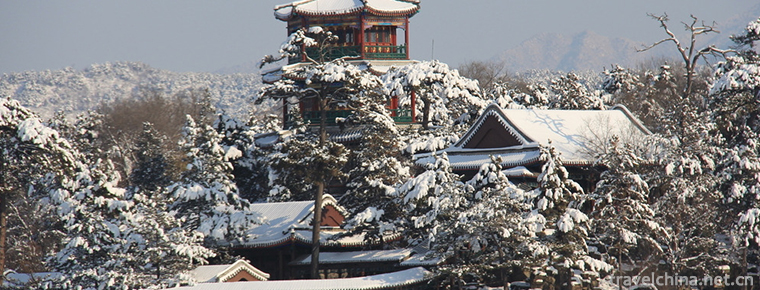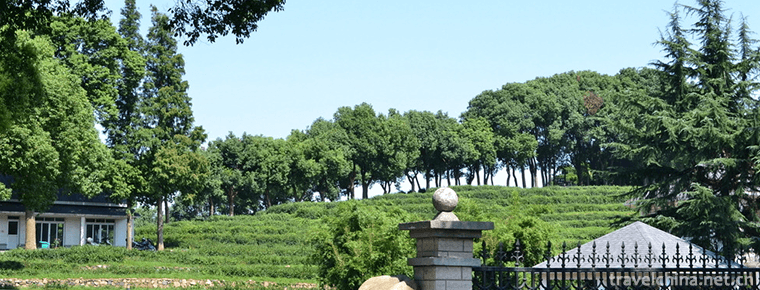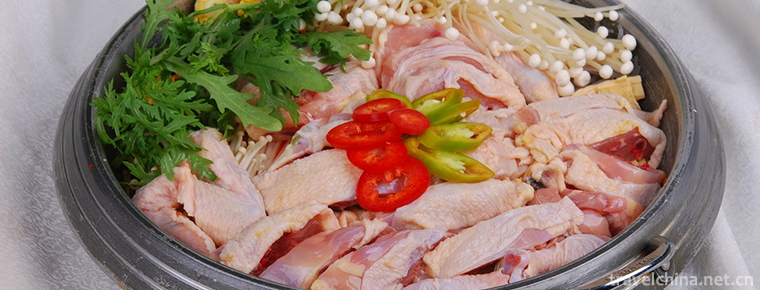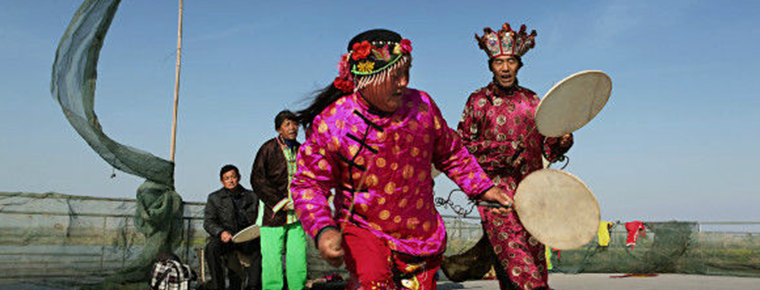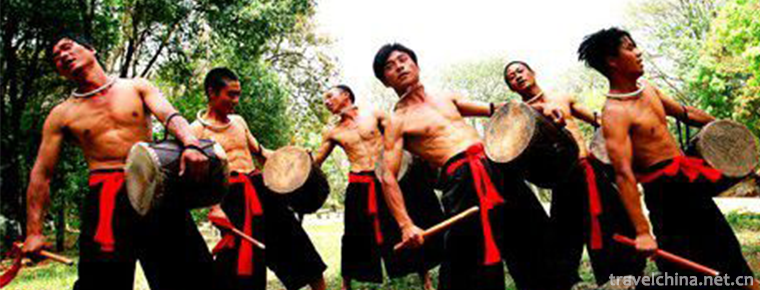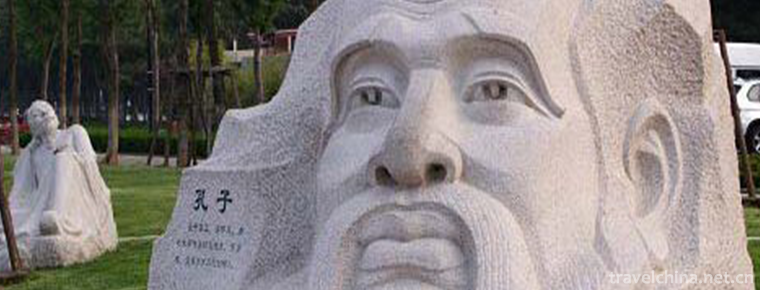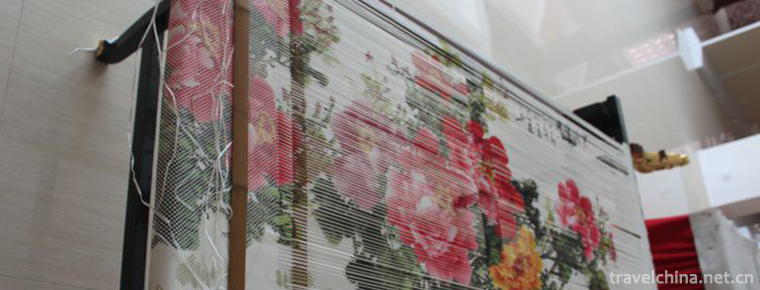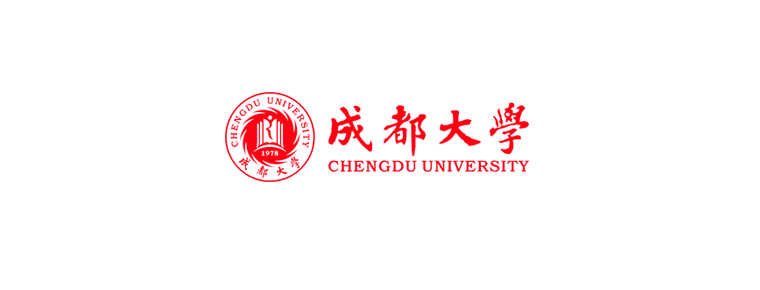Mei Ge
Mei Ge
Meige is the general name of Yi folk song and dance and folk oral literature. Its content is all-encompassing and almost reflects the history, culture, production and life of the Yi people. It is regarded as the root genealogy of the Yi people, the Encyclopedia of the Yi people and a long narrative epic. Spread in Yunnan Province Chuxiong Yi Autonomous Prefecture Yao'an, Dayao, Yanfeng and other counties. The word "Meige" is a transliteration of Yi language. It was originally the name of a melody, and the epic was sung in Meige. List the second batch of national intangible cultural heritage catalogues in China.
Source Legends
Meige is a Creation Epic of the Yi nationality sung in Meige tune. Its content includes the creation of the world, the origin of mankind, creation, production, marriage, funeral and the relationship between the Yi and other nationalities. Meige originated from Mayouping Village, Guantun Township, Yao'an County, Chuxiong Yi Autonomous Prefecture. According to folklore, in ancient times, the Yi ancestors who lived in Ma You Ping made it at sunrise, and the sunset subsided, leading a plain life. One evening, a young man named Dougong came home from work, and his head was touched by a gourd hanging on a tree. It hurt so much that Dougu scolded him and tore the gourd down and threw it down the mountain. But I don't know that this gourd is the change of God. God can't understand how ordinary people treat the gourd like this. At night, he asks Duogu to ask him if he knows that people come from the gourd. Duogu says he doesn't know. No one here knows. God was disappointed and said, "You don't know where you came from or where everything in the world came from. No wonder you don't know how to sacrifice to gods." So he decided to open up people's wisdom and teach Duoge "Meige" and sacrificial rituals every night by means of dream-telling. But after eight nights, Duogu remembered the back and forgot the front. The effect was very bad. The God is very anxious, because the God can only stay in the world for nine days. If we use words to teach, the effect will be good, but when we leave the heaven, we forget to bring words, so there is no words to teach. In a hurry, the God created the Meige melody, and only in the form of singing did he completely impart the Meige to Duoge. Before leaving, the God told Duo Gou that you would henceforth be the "Duo Gou" between man and nature, half god and half man. It is also said that October 8 of the old calendar is the day when the gods of mountains, trees, water and other gods gather together. On that day, when they sacrifice mountains and sing Meige, they will be blessed by various gods.
Since then, there has been Duo Gou (Bimo), who not only presides over all kinds of sacrifices, but also sings "Meige". People also know the fear of gods, so that helpless souls find the support of consolation. They also learned to sing "Meige", so that the dull mind has a poetic world. From then on, we know that God created all things, we know that when the flood changed people, two brothers and sisters hid in the gourd and survived. We know that the brothers and sisters gave birth to the gourd and then walked out of the human ancestors. From then on, we realized the beauty of music and the joy of dance. From then on, the Yi family can speak and sing Meige tune and dance the gourd dance when walking. But because there are no words, Meige can only be imparted orally and heartfelt. Generations after generations, more and more people sing, more and more widely spread, "Meige" versions are also diverse. However, no matter how it changes, the main parts of creation and creation are much the same, which are regarded as "root spectrum" by the Yi family, as "epic" by researchers, and as "encyclopedia" of Yi culture.
(Collection of murals reflecting the content of Meige )
Content form
Meige is divided into four types: old Meige, middle-aged Meige, young Meige and Wawa Meige.
"Senile Meige", also known as "Chimeige" among the Yi people, is mainly about singing, pioneering, founding and working life. Its tone and content are relatively fixed, and it is generally sung by middle-aged and old people. For example, the second book of Creation of Meige talks about building houses, hunting and farming, introducing production knowledge directly; the chapter of Shuoqin talks about the customs of marriage. When the man comes to the woman's home to pick up his wife, the woman asks the man a series of questions about production knowledge, and then the man asks the woman back. This kind of "examination" fully shows that labor has become a simple way to measure the beauty and ugliness of a person. Su's values.
"Young Meige" is also called "Shanmeige" among the Yi people. It mainly reflects the pure love life of the young men and women of the Yi nationality. It belongs to the nature of love folk songs. It mainly has the following tunes: good tune, smoke-passing tune, flower-wearing tune, bitter tone, farewell tune and festive tune. The general tone content is not fixed. It can be improvised and played at will. "Meige in Middle Age" is mainly about the hardships and hardships of the production and life of young men and women after they became married. The melody of the content is rather sad and melancholy. "Wa Meige" is a "nursery song" of the Yi people, commonly known as "doll tune". It is usually sung by groups of young people and children of the Yi nationality. It is easy to remember and recite. When singing, the children are happy, interesting and have endless aftertastes. It gives people a strong flavor of national local life and a simple and pleasant aesthetic feeling.
(Meige Biography Atlas )
Inheritance value
"Meige" reflects not only the world outlook of Yi ancestors in ancient times and the rich imagination of the universe, but also the evolution and development process of Yi people's production and life. It also reflects the Yi people's customs of love, marriage, funeral, cherishing relatives and farewell, as well as the close economic and cultural relationship between Yi compatriots and other brothers.
The creation myth of Meige is worldwide. It is the ideology of human primitive period and has important historical value and certain literary value.
Inheritance mode
"Meige" has no written records. It is totally handed down and preserved by word of mouth. It teaches the accumulation of primitive knowledge, carries out traditional behavior patterns, maintains ancient social traditions and disseminates long-standing aesthetic experience. Every February 8th and June 24th National festivals, weddings, funerals, marriages and houses, men and women gather around bonfires or fire ponds, playing three strings, playing gourds, roaring Meige, dancing Yi songs and dances, all night long. Therefore, Ma Youping is also known as "the hometown of Meige" and "the land of singing and dancing".
Endangered situation
By the beginning of the 21st century, the crisis of Meige's inheritance and development had arisen for many reasons. The main situations are as follows:
1. The death of the singer makes the inheritance of Meige in crisis. In the 1950s and 1960s, Ma You's singers knew and sang all kinds of "Meige" tunes well. At that time, "Meige" had a deep mass base, and there were many singers who were proficient in "Meige" and good at singing "Meige". However, by the beginning of the 21st century, the old generation of singers have died one after another, and the successors of Meige are countless. There are fewer than five singers over 60 who are good at singing "Meige for the Elder" with the content of creation, and no one can sing it completely. Most young and middle-aged people aged 30 to 50 can only sing "Meige for the Youth", only a few of them can sing part of the "Meige for the Creator" under 20 years old. In China, singers who can sing "Wa Meige" are very rare.
2. The change of context makes the inheritance of Meige lose its authenticity. Traditional singing is full of charm, and modern singers tend to narrate plainly and directly, which seems insipid. The younger generation speaks more and more Yi, and Meige shrinks gradually. Once the Yi language disappears, Meige will naturally cease to exist with the disappearance of the context.
3. The change of Customs leads to the loss of part of the content of singing. Meige is inherited by its specific customs and habits. In the past, Ma You Yi people held a very lively wedding ceremony, and the festive occasions were festive with singing. The most distinctive feature was that Duoyao would hold a ceremony to retreat evil spirits for the bride who entered the wedding hall, and sing "Qi Penmeige" (retreat evil spirits), while the singer sang "Qi Penmeige" (Li Xitian). In the customs of migration in the 1960s, this traditional marriage custom was abandoned, "Qi Penmeige" and "Qi Penmeige" (retreat evil spirits). Meige was also lost. The disappearance of "girl's room" in the place of young people's love and the change of the form of gathering "to be a partner" make the marriage and love of Mege lose the good soil for survival.
4. The impact of foreign culture makes the transmission of Meige face severe challenges. In the past, "Meige" was the main way of entertainment in Yi people's life. Every wedding festival, people interrogated each other in the competition and showed their skills in singing. Rural contracted production reduces people's gathering opportunities and time. 60% of the villages have televisions and 30% have DVDs. Traditional entertainment methods have changed greatly. Young people go out to work, and the younger generation is more and more far away from the traditional cultural environment of the Yi people. Generations of acceptance of "Meige" are facing a crisis.
protective measures
The collection and collation of Meige began in the 1950s. At that time, some people of insight paid attention to the collection. In 1957, Xu Jiarui, then chairman of the Yunnan Provincial Cultural Federation, went to Yao'an to investigate and consult with Chen Jiping, then head of the cultural and Educational Department of Yao'an County, on the collection of Meige. Since then, Chen Jiping organized Guo Kaiyun and others of Yao'an County Cultural Museum to stationed in Ma'you Village, collecting and sorting out the "Meige" circulated in Ma'you area comprehensively; In September 1959, it was officially handed over to the people of Yunnan Province. Publishing house. The collection and publication of Meige is divided into four parts, namely "Creation", "Creation", "Marriage" and "Funeral". Each part is composed of several small pieces, each part of which has a relatively independent meaning and can be singing alone. Since then, "Meige" has become popular rapidly with its unique charm. In 1961, Guo Moruo praised it through Chuxiong's poems: "A hundred flowers are placed in the frontier, twelve brothers gather together to create heaven and earth, and the singing and dancing of Meige is fragrant.
(Meige Heritage Atlas )
In August 1985 and February 1986, Mark Bender, a teacher of the Foreign Language Department of Guangxi University, visited Yao'an twice and introduced the translation of Meige overseas. In 1987, Meg was translated into English and published in the American Journal of Exploration, which aroused strong repercussions in the international academic circles. In 1990, the "Yunnan Chuxiong Yi Folk Art Troupe" composed of Yi folk artists from Ma Youping was invited to Japan to attend the "Third Asian Art Festival". The folk singers of Ma You Village in Yao'an County performed brilliantly by Kaiyou, Luo Denglong, Luo Bin and Luo Qinglan, who dumped numerous Japanese fans and won honor for Yao'an.
On July 28, 2006, Meige was published by the Yunnan Provincial Government as the first batch of intangible cultural heritage protection lists in Yunnan Province; on June 7, 2008, the "Yi Meige" was published by the State Council as the second batch of national intangible cultural heritage protection lists. Ma You Village is also listed as the first batch of intangible cultural heritage reserve of the Yi nationality in Yunnan Province. Then it was designated as the ecological reserve of the Meige culture of the Yi nationality in China at the state and county levels. It is the place where the Meige culture of the Yi nationality in China is inherited and the famous village of the national culture. Guo Youzhen, a folk artist of Meige singing, has also been declared as the representative transmission of the national intangible cultural heritage by the Ministry of Culture. Bearing.
In order to inherit and protect Meige culture, and in line with the principle of "repairing the old as the old", Yao'an County has restored the "Yixue School" in Ma You Village. It has widely collected books, audio-visual materials, musical instruments, embroidery, handicraft and labor tools of Meige culture, and built the Ethnic Culture Exhibition Room of Ma You. The exhibition has four exhibition areas: embroidery, daily necessities, calligraphy, painting and image. All kinds of media at the central, provincial and state levels were invited to organize and shoot TV feature films such as "Meige Hometown, Yizhou Wenfu-Yao'an" and publish books such as "Millennium Zhifu-Yao'an" and "Culture Yao'an" to promote and display the Meige culture of the Yi people in various forms. The county has also successfully applied for registration of the intellectual property trademark of Meige Culture, effectively protecting the brand of Meige Culture. After the successful registration of "Meige Culture" trademark, the "Meige Culture Park" has been built in the county. The successful operation of "Meige Square", "Meige Inn" and "Meige Culture Pedestrian Street" has effectively strengthened the brand effect of "Meige Culture". They also regularly invite old artists to teach young people Meige culture by way of mentoring and apprenticeship. Meige dance is widely popular among local students.
By 2009, the county also successfully held three Yis Meige Culture Festivals, which effectively enhanced the cultural self-confidence and pride of the Yi people, enhanced the consciousness of the Yi people to inherit culture, and also expanded the influence of Meige culture.
Yao'an County also takes the "Yi Meige Cultural Ecology Reserve" as the carrier, and strives to form the county's national culture protection circle. We should actively develop the cultural brands of Yi people's residence culture, costume culture, diet culture, folk culture, farming culture, religious sacrifice culture and Yi traditional song and dance. We should build Yao'an County City-Mayouping-Huangnitang-Triangle-Disuo-Zuomen-Huajiao Garden "Yi Cultural Tourism Circle" with the theme of Meige Culture and Folk Customs, and promote tourism development with culture as the driving force. The cultural industry development pattern of interaction between culture and tourism should be formed through protection.
The Prefecture Government of Chuxiong State Party Committee attaches great importance to the protection and development of Meige culture of the Yi nationality. It has set up a Meige Culture Protection Fund and allocated special funds for the inheritance and protection of Meige. It has specially arranged for the director of the Art Museum of the National Academy of Painting and the famous painter, Shu Jianxin, to help the poor in Ma Youping, the hometown of Meige. Shu Jianxin made full use of the advantages of well-known painters'network resources and long-term experience in the cultural system. He established the Chinese Yi Meige Cultural Institute, the Chinese Yi Embroidery Research and Development Center, and the sketching base of Yunnan Academy of Painting in Ma Youping. Chuxiong Prefecture has also decided to set up a fund for the protection of Meige's cultural heritage in China, to rebuild girls'houses, to restore the ecological environment, to protect Meige's folk artists and to train Bimo's successors.
On May 1, 2011, the film "Meige" was filmed in Yao'an, May 28, 2011, in Dayao County, Chuxiong Prefecture, the beautiful Xinhua Mountains closed the mirror. The film "Meige" is based on the folk literature treasure of the national intangible cultural heritage, the Yi "Meige", which is a film with the theme of Yi culture. It reflects the collision, exchange and integration of Eastern and Western cultures through its ups and downs of plots, distinct characters and original environment of shooting, rich and colorful Meige songs and dances, and shows the Yi culture. Broad, profound and colorful. The intangible cultural heritage has been protected in an innovative way.
In order to protect this intangible cultural heritage, Mayou Primary School specially added Meige class exercises in class exercises.

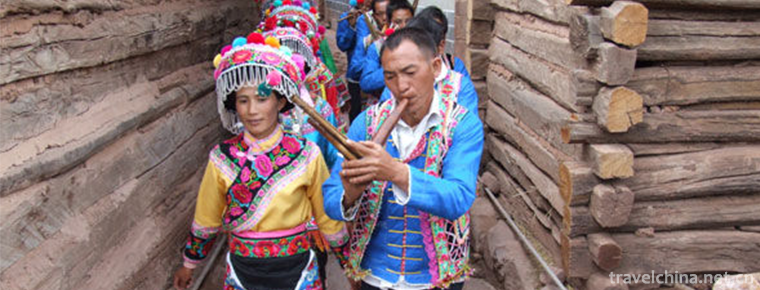
-
Chengde Summer Resort and its surrounding Temple scenic spot
Chengde Summer Resort and its surrounding Temple scenic spot, World Cultural Heritage, established in 1994. It is located in Chengde City, Hebei Province.
Views: 197 Time 2018-11-24 -
Sheshan State Forest Park
Shanghai Sheshan National Forest Park was approved by the Ministry of Forestry in June 1993. It is located in Songjiang, an ancient city in the western suburbs of Shanghai. It covers an area of 401 he.
Views: 121 Time 2018-12-22 -
Ginseng Chicken Hotpot
Wash ginseng, boil it in a little water, take out slices, and cook it in the original pot for 15 minutes. Still soak it in the original soup. All the above ingredients except hen nuggets and ginseng s.
Views: 239 Time 2019-03-24 -
Fishing Drum of Hongze Lake
The fishing drum of Hongze Lake, also known as Duan Encouragement, is a form of dance in which the singing and dancing were combined in a specific area when the old Shenhan burned paper for fishermen .
Views: 215 Time 2019-05-03 -
Craft of birch bark making
Birch bark making techniques, Oroqen Autonomous Banner of Inner Mongolia Autonomous Region, local traditional handicraft of Heilongjiang Province, one of the national intangible cultural heritage..
Views: 174 Time 2019-05-04 -
Drum dance
Hani rhythm and drum dance is a kind of sacrificial dance of Hani people on the traditional festival "Onmatu". The dance is vigorous and bold, vigorous, simple and free, showing the same per.
Views: 53 Time 2019-05-23 -
Quyang stone carving
Quyang stone carving is an important part of folk art in Quyang County, Hebei Province. Since the Western Han Dynasty, Quyang stone workers have used marble to carve steles and other objects. Quyang s.
Views: 261 Time 2019-06-11 -
Yongchun Paper Weaving Painting
"Yongchun County Chronicle" records: "In the early Tang Dynasty, Yongchun had the production of paper-woven paintings. Yongchun paper weaving painting features: interwoven paper marks, .
Views: 170 Time 2019-07-14 -
Chengdu University
Chengdu University, established in 1978 with the approval of the Ministry of Education, is a comprehensive University jointly built by Sichuan Province and Chengdu City. It is a key comprehensive univ.
Views: 303 Time 2019-08-31 -
Anhui Polytechnic University
Anhui Engineering University is a provincial multi-disciplinary higher education institution and a key construction institution in Anhui province. It is the first pilot institution of comprehensive re.
Views: 133 Time 2019-10-10 -
Mount sanshen
The three sacred mountains in Yading, Daocheng, are composed of three snow peaks, xiannairi, yangmaiyong and xianodoji, representing respectively Guanyin Bodhisattva, Manjusri Bodhisattva and Vajrayana Bodhisattva..
Views: 208 Time 2020-10-13 -
Yibin secondary industry
In 2019, the total industrial added value of Yibin City is 99.082 billion yuan, an increase of 9.5% over the previous year, and its contribution rate to economic growth is 45.5%. At the end of the year, there were 824 Industrial Enterprises above Designated Si.
Views: 106 Time 2020-12-18
